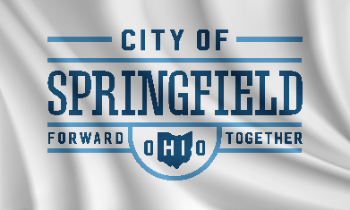The National Conversation and It's Impact On Springfield, Ohio

By Faith Chang, Graduate Assistant
Election years always bring how our government functions to the forefront of conversation and attention. This year’s election season in particular has continued to dominate American politics and political dialogue, opening up many windows into how the everyday lives of citizens are impacted by the race for the office that serves those citizens. One recent example of this is the events occurring in Springfield, Ohio in which former President Trump stated that Haitian immigrants in Springfield, Ohio were abducting and eating pets. This accusation was repeated by Trump’s running mate JD Vance and Harris’ running mate Tim Walz. Setting party affiliations or positions on immigration policy aside, the situation in Springfield caused by the presidential campaigning provides an interesting look into how presidential election seasons can impact local government and community.
An article from NPR, written before former President Trump’s statements on Springfield, Ohio, highlights the genuine concerns of those on both sides of the immigration issue in the city. Some community members say they fear the strains on city services this influx of people brings, while others say that a larger population will be healthy for bolstering the local economy. Others articulate a concern for dealing with issues like health and safety when there is a language barrier while others say that these immigrants help fill the long-empty gap in labor needs. At the core of all these concerns lies local government. Everything, from the economy, public safety, education, and even translation services, is all dealt with and impacted by the local government. In the unique circumstance of an election year, and the even more rare chance that the spotlight falls on a specific town that embodies a key issue of the election, the words of a politician, or anyone with a microphone and platform, can have much a greater impact on local government than we may realize.
Often the attention is directed at the politics of the situation, but the focus of
this conversation leans towards the burden a presidential campaign can place on local
government. Mayor of Springfield, Ron Rue, talked about the toll the rumor has taken
on the city, citing overtime and extra contracts as some of the costly items on an
already long list. This list of city expenses is one that has already existed for
some time as the city had been facing budget falls due to a weaker economy and declining
population. While the city is now experiencing increasing development opportunities,
there is still work to be done. But rather than in division and conflict, the city
wants to take on these opportunities as a united community. Bryan Heck, Springfield’s city manager, addressed the impact of political rhetoric on the city
and its growth, “While we are experiencing challenges related to the rapid growth
of our immigrant population, these challenges are primarily due to the pace of growth
rather than the rumors being reported.”. As he spoke he emphasized the word pace.
Regardless of the validity of their statements, the former president’s words and the
subsequent amplification they received through social media and others have put pressure
on a city that is learning to balance insufficient local infrastructure with fast
growth and development.
Mayor Ron Rue has publicly discouraged candidates from making stops in Springfield as the amount of extra infrastructure needed to host a presidential candidate would greatly strain the community. The city is a campaign target spot, due to Ohio being a swing state in this seemingly close election. But bringing such a large campaign stage to the city requires a greater expenditure of the taxpayers’ money. The hosting city often needs to deploy larger amounts of fire and police forces, as well as public works and traffic services to manage the security needs and crowds that come with the campaign. There is also the looming possible cost of unforeseen circumstances linked to the presidential campaign, that add to the bill.
Our nation can get swept up in the energy of the presidential election season. But what may not always be acknowledged is how much impact a presidential election, and the campaigning that comes with it, can impact the basic functions of the local government and the very citizens whose vote they hope to win. Is there a way to mitigate the heavy impact presidential campaigns can have on local communities? This is a question that should receive more thought and attention.
Here are the articles used in this post as well as additional resources for further information:
How Springfield, Ohio, took center stage in the election immigration debate:
Articles Referring to Mayor of Springfield Ron Rue:
https://www.cnn.com/2024/09/21/us/springfield-ohio-financial-fallout/index.html
I’m the Republican Governor of Ohio. Here’s the Truth About Springfield:
https://www.nytimes.com/2024/09/20/opinion/springfield-haitian-migrants-ohio.html
Statement by the City Manager of Springfield:
https://youtu.be/hdsOd1_c22A?si=oOCkEosBlW26prXh
Trump Falsely Accuses Immigrants in Ohio of Abducting and Eating Pets:
https://apnews.com/article/haitian-immigrants-vance-trump-ohio-6e4a47c52b23ae2c802d216369512ca5